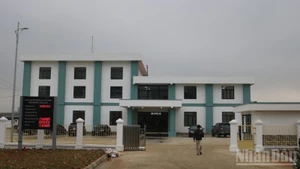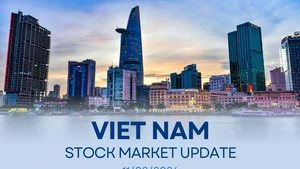Deputy Minister of Science and Technology Hoang Minh assessed that Vietnam's creative startup ecosystem has been growing strongly. As of March 2023, total venture investment capital reached 427 million USD. According to the Global Innovation Index (GII) recently announced by the World Intellectual Property Organisation (WIPO), Vietnam has improved its ranking from 48th to 46th out of 132 countries and territories worldwide.
In the country, 20 localities have been developing projects to form a Centre for Innovation and Startups Support; 60 provinces and cities have issued plans to implement the Project of Supporting National Innovative Startup Ecosystem until 2025; 39 provinces and cities have issued the Resolutions of the People's Councils regulating financial mechanisms for start-up support activities. Hanoi and Ho Chi Minh City are among the top 200 global startup ecosystems.
The above figures show that Vietnam's innovation startup ecosystem is on the rise, but there are still many difficulties and challenges. Specifically, there is a lack of policies to develop a creative startup ecosystem, such as capital funds, policies to encourage individuals to provide venture capital for creative startups and encourage training programmes on innovation in schools.
This poses challenges for startups in securing capital, attracting and retaining talents, and complying with complicated regulations. Besides, the policies are still scattered and do not deeply focus on each industry and field. There are still limitations in nurturing, training and consulting the organisations and businesses in startups. There is also a lack of connection between universities and startup ideas. In addition, the policies supporting the commercialisation of startup products are still lacking.
Notably, startup businesses face limitations in capital, facilities, management skills, business operations, promotion, advertising, and the ability to meet necessary administrative procedures. The training activities have not been organised regularly.
Director of the Department of Technology Application and Development under the Ministry of Science and Technology, Nguyen Mai Duong, said the innovation activities of Vietnamese enterprises have been less than expected, especially in terms of innovation of products and processes. It is difficult for businesses to access many preferential policies due to administrative procedures. The management mechanisms have not kept up with innovation development and have become a barrier.
Proposing policies to promote innovation through technology dissemination, Nguyen Mai Duong said it is crucial to strengthen the legal framework to create a fair playing ground for businesses. The enhancement of intellectual property rights protection to create tools for promoting innovation and technology application is also an issue of concern.
Deputy Director of the National Innovation Centre (NIC) Do Tien Thinh said the lack of regulations on operating models and specific autonomy mechanisms for this type of innovation centre leads to difficulties and obstacles in forming the administrative apparatus and structure, attracting and retaining the talents, and receiving domestic and international support sources. The lack of management regulations and specific incentive mechanisms also causes difficulties and obstacles for other public service units in using and exploiting public assets.
On that basis, Thinh noted that it is crucial for state management agencies to soon issue common and focused mechanisms and policies on innovation and startups according to international practices, especially policies that accept high risk and form innovation centres and mechanisms on research and development infrastructure sharing.
With many years of experience, Tran Tri Dung, a startup consultant from the Swiss Entrepreneurship Programme, shared that the intermediaries should be developed. Although there are incubators, acceleration programmes, and startup support programmes in universities, their capacity still needs to be fostered.
According to experts, in the context of the fourth industrial revolution, innovation will create unprecedented products and services, so a specific legal corridor and interdisciplinary mechanism are needed to find appropriate behavioural solutions. Creative startups create new models, products, and businesses. Therefore, a legal framework should be built for creative innovation and startup activities, and centres for connecting creative startups with businesses and other elements of the ecosystem need to be formed.
Currently, there are many concepts used for innovation and startups, leading to inconsistency. Furthermore, there are no regulations on operational management or preferential policies for new organisations. This problem raises the need for general regulations to define and unify the functions and tasks of innovation organisations and creative startups. At the same time, it is necessary to supplement regulations on monitoring, evaluation and confirmation so that the organisations can enjoy appropriate incentives.
















